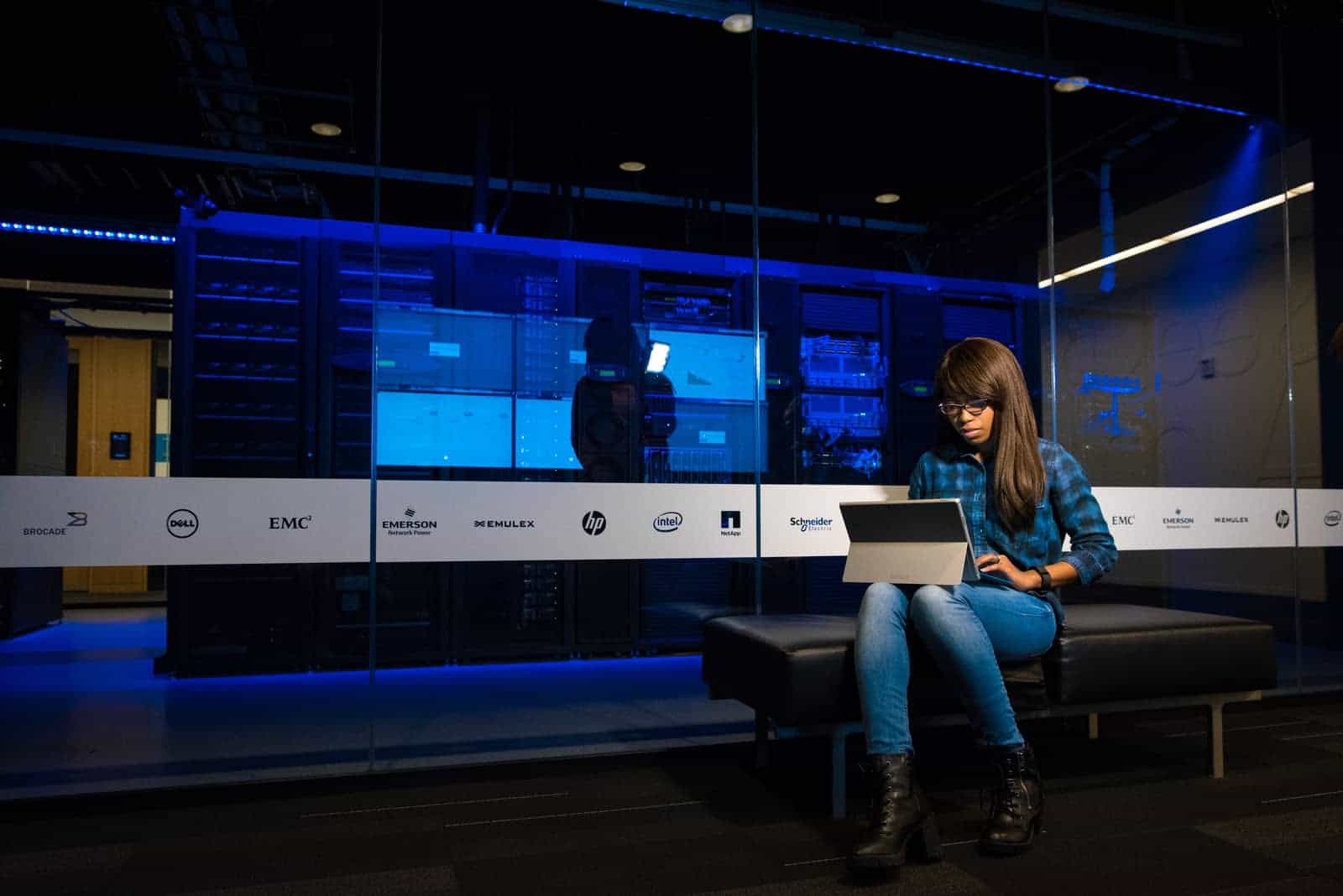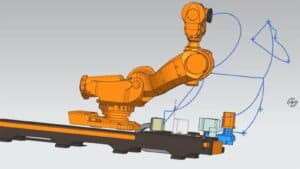
As a network engineer, you know that finding the best laptop for network engineering tasks is essential for success in your field. There is a multitude of factors to consider when selecting the ideal machine to handle the complex demands of network design, simulation, monitoring, and troubleshooting. In this guide, we'll take an in-depth look at the top laptops that cater to these unique requirements.
Having reviewed an extensive spreadsheet of recent laptop releases, and comparing both specs and reviews (both professional and user-generated), we have narrowed down the top laptops based on topic-specific requirements and price ranges. Balancing power, portability, and features, we aim to provide valuable insights for network engineers seeking the best laptop for their professional needs.
As someone experienced in the networking field, I can attest to the importance of having a laptop with a powerful processor, ample memory, and fast storage. Furthermore, I understand the value of having a reliable laptop with an excellent battery life and a sturdy build, as well as tools like Wi-Fi 6 support and Thunderbolt ports for efficient connectivity. In the upcoming sections, we'll explore the top contenders for the best laptop for network engineers, taking into account these crucial factors and more.
Engineer your network with the right processor
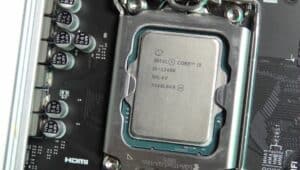
Laptops
The laptop processor market has recently seen some significant changes. Apple's ARM-based M-series processors and AMD's latest 7th-generation Ryzen CPUs have both made waves. Intel's 12th-generation Core processors are still a great value for those not in need of cutting-edge performance.
If you're looking for a Windows laptop, the latest Ryzen 5 or Ryzen 7 H-series processors from AMD are highly recommended. While Intel has released its latest chips, they're not as competitive as AMD's latest offerings in terms of performance per dollar.
For network engineers, single-core performance is still essential for certain applications such as network troubleshooting. So, we recommend comparing processors across different price points using benchmarks such as Cinebench R23 or PassMark to identify the best processors under $1,000 and $2,000.
If you plan to use your laptop for gaming or video editing, consider investing in a higher-end processor with an i7 or Ryzen 7 label.
Here are our recommendations for various budgets:
| Processor | Budget |
|---|---|
| i3-1115G4 | Under $700 |
| i5-1135G7 | Under $1,000 |
| i7-11370H | Under $2,000 |
Remember that multiple cores and hyper-threading may not be as important for network engineers as they are for other professions. So, it's best to focus on single-core performance when making your decision.
Power up your network engineering with these graphics cards.
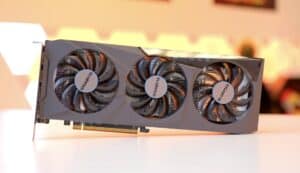
When it comes to network engineering, having a dedicated graphics card can greatly improve the speed and efficiency of your daily tasks. However, choosing the right graphics card for your needs can be a daunting task, especially with the wide variety of options available in the market.
First, let's take a look at the state of the GPU market. Nvidia continues to dominate the laptop GPU market, with their RTX 30 series cards still comprising the lion's share of the current notebook GPU market. However, it's important to note that desktop GPUs are now a lot more power-hungry, which has widened the gap between power-limited notebook graphics and desktop graphics cards in recent years. Additionally, Nvidia has discontinued the Max-Q label for its RTX graphics cards, which means that an exact GPU wattage is now determined by the laptop manufacturer (OEM), resulting in a wide variance in graphics performance even in laptops with the same GPU chipset.
So, what are the requirements for a graphics card for network engineering? It's rare to find a laptop with an integrated graphics chip that's suitable for network engineering. That's because most of the time, you'll need a dedicated GPU to accelerate your daily tasks, such as installing and configuring VMs. To get the best performance out of your laptop's GPU, make sure it has enough power delivery (PD) wattage and is not limited by its power delivery capacity (in other words – ensure it can deliver 100% of its power).
However, having a high-end graphics card is not necessarily needed for network engineering. While Nvidia has recently released their new Turing-based GPUs, which offer impressive performance gains over their previous generation (Max-Q), these chips are not available in every laptop model and are often found only in high-end models that may not be well suited for networking engineers due to their high price tag and poor battery life.
With that in mind, my recommendations for both budget and high-end GPUs are as follows:
- Minimum: GeForce GTX 1650
- Recommended: GeForce RTX 3050
- High-end: GeForce RTX 2060
When comparing GPUs, I use 3DMark benchmarks since they're easy to find and fairly representative of real-world gaming performance. If you're looking for a more comprehensive look at your potential laptop's graphics capabilities, look up its 3DMark score aggregated from multiple tests (such as Time Spy or Fire Strike).
Ultimately, the right graphics card for you will depend on your specific needs and budget. However, with these recommendations, you can make an informed decision and choose a graphics card that will help you improve your efficiency as a network engineer without breaking the bank.
Memory Matters: How much RAM does a Network Engineer's laptop need?
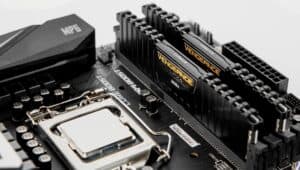
RAM is an essential component for network engineers as it plays a vital role in loading operating systems and applications, which are critical for their daily work. When choosing the right laptop RAM, it's important to consider your daily tasks and the number of virtual machines you're working with.
Most mid-range laptops come with 16 GB of RAM, while high-end laptops come with 32 GB or more. If you're working with virtual machines, 16 GB is a good starting point. But if you're working with more than one VM at a time, 32 GB would be better.
It's worth noting that the latest-gen Intel and AMD CPUs support DDR4 and DDR5. While DDR5 is still quite expensive and needs time to mature as a technology, DDR4 is more widely available and sufficient for most users' needs.
Aside from the amount of RAM, other specs that matter include frequency, CL, and ECC. Higher frequency and lower CL numbers offer faster performance, while ECC RAM can detect and correct memory errors.
When it comes to budget, the minimum recommended RAM for network engineers is 8 GB. However, we recommend going for at least 16 GB, especially if you're using virtual machines. High-end users should opt for 32 GB.
If you're looking for an upgradeable laptop, make sure to check for SODIMM slots and consider upgrading later on if needed.
In summary, when deciding on the right laptop RAM for network engineer laptops, consider your daily tasks, the number of virtual machines you're working with, and your budget. Opting for at least 16 GB of RAM is recommended, while high-end users should aim for 32 GB.
Unleash Your Network Engineering Potential: FAQs Answered!
Q: What laptop specs are required for network engineering?
For network engineering, you'll need a laptop with a reliable processor, a dedicated graphics card, and sufficient memory. Refer to the table of provided Requirements for minimum, medium, and maximum specifications.
Which laptop is best for network engineering?
The Lenovo Legion 5 Pro is the best laptop for network engineering, according to the provided Recommendations. However, it ultimately depends on your budget and specific needs.
Do I need a high-end laptop for network engineering?
It depends on your requirements. A mid-range laptop with the recommended specifications can provide satisfactory performance for most network engineering tasks.
Can a laptop be used for network engineering?
Absolutely. A laptop can be an excellent choice for network engineering, especially if you need a portable device that can be used on-site.
What kind of processor do I need for network engineering?
A processor with a high clock speed and multiple cores is recommended for network engineering. Refer to the table of provided Requirements for minimum, medium, and maximum specifications.
What amount of RAM is required for network engineering on a laptop?
For network engineering, 8 GB of RAM is the minimum requirement, while 16 GB or more is recommended for more demanding tasks.
Is a dedicated graphics card necessary for network engineering on a laptop?
While a dedicated graphics card is not necessary for most network engineering tasks, it can be helpful for more demanding visualizations.
What are the minimum laptop requirements for network engineering?
The minimum laptop requirements for network engineering are an i3-1115G4 processor, a GeForce GTX 1650 graphics card, and 8 GB of memory. Refer to the table of provided Requirements for more information.
How to choose a laptop for network engineering?
When choosing a laptop for network engineering, consider the recommended specifications and your budget. It's also essential to prioritize features such as battery life, portability, and durability.
Can I use a gaming laptop for network engineering?
Yes, you can use a gaming laptop for network engineering, as long as it meets the recommended specifications. Gaming laptops often come with powerful processors, dedicated graphics cards, and ample memory, making them well-suited for network engineering tasks. However, they may be heavier and have shorter battery life than other laptop types.
6 Best Laptops for network engineer
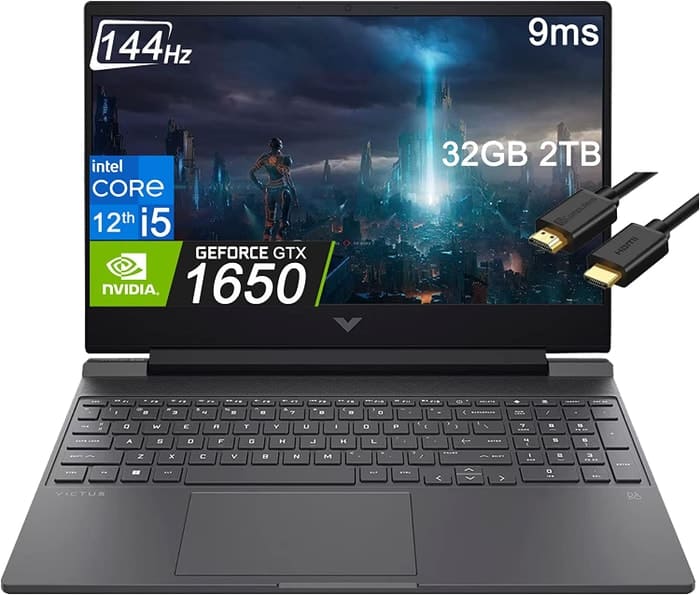
1.HP Victus 15
HP Victus 15: Budget Gaming Laptop with Respectable Performance- Excellent price
- Good gaming performance
- Can double as a work laptop
- Solid array of ports
- Bad battery life
- Rather plain design
- Weak GPU yields unsatisfactory frame rates
- Screen only so-so despite 144Hz refresh rate
Summary
The HP Victus 15 offers a budget-friendly option for gamers, delivering solid performance and sustainability. While its design may be plain and the battery life is subpar, it is a great value for those looking for an affordable gaming laptop.
Alternatives
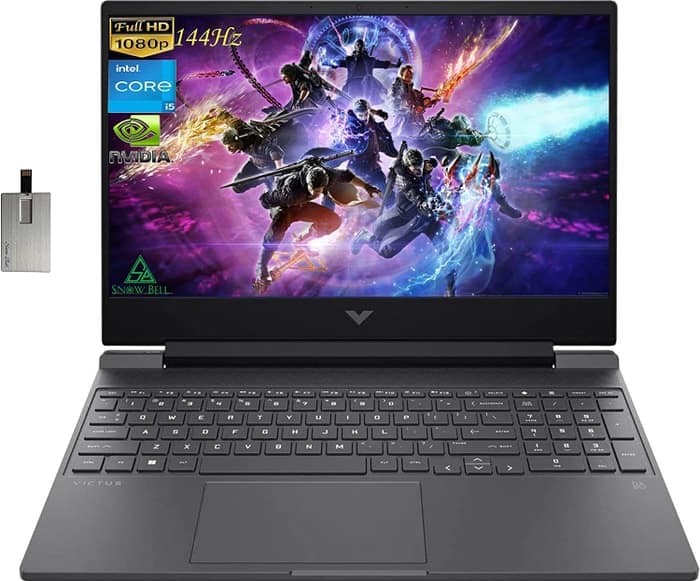
HP Victus
- Delivers smooth gameplay at 1080p.
- Fast SSD.
- No variable refresh rate to reduce screen tearing.
- Some performance loss on CPU under load.

2.ASUS TUF Dash F15
The ASUS TUF Dash F15 is a competitively priced laptop that offers good performance and a range of screen options, making it a solid choice for network engineers on a budget.- Lightweight and well-built
- Good range of screen options
- Competitive pricing
- Good battery life and USB-C charging support
- Some minor ergonomic quirks
- Ports squeezed together on the left edge
- Avoid the FHD 144Hz panel option
Summary
The ASUS TUF Dash F15 is a powerful and well-built laptop that is priced competitively. It offers a range of screen options, including a FHD 300Hz display, and has good battery life and USB-C charging support. However, there are some minor ergonomic quirks and the FHD 144Hz panel option should be avoided.
Reviews
Alternatives

Lenovo Legion 5i Pro 16
- Stylish, sleek form factor
- Gorgeous display
- Webcam quality is poor
- No biometric features
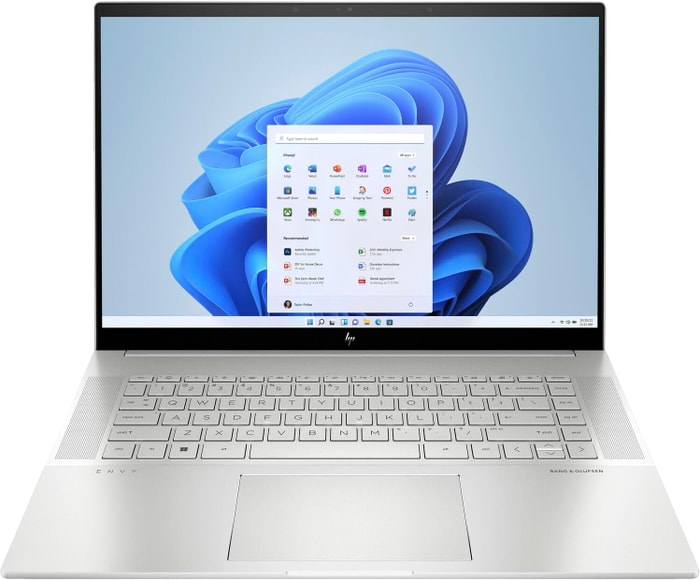 $1,800
$1,8003.HP Envy 16
HP Envy 16: A high-end choice for creative apps and light gaming.- Plenty of CPU and GPU power
- New 120Hz screen refresh rate
- High-res webcam
- Sleek design
- Merely adequate base screen
- Optional OLED has fewer pixels than before
- Bulky and heavy
Summary
With its high-end features like a world-class webcam and a 120Hz refresh display, the HP Envy 16 is a tempting desktop replacement option for network engineers looking for a laptop that can handle creative apps and light gaming.
Reviews
Alternatives

ASUS ROG Strix G15
- Impressive CPU and GPU performance
- Good workmanship and design
- Skimpy connectivity
- Potential coil whine in certain situations
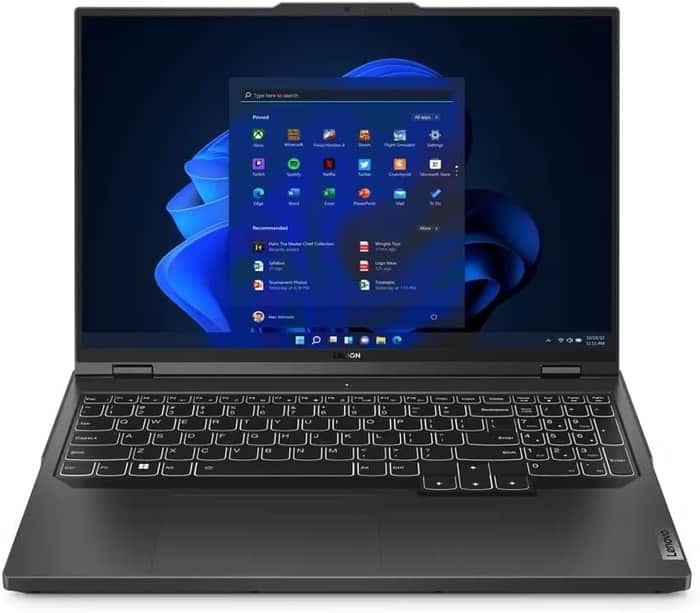
4.Lenovo Legion Pro 5
Lenovo Legion Pro 5 - A well-built mid-tier laptop with good performance and screen, but with some drawbacks.- Good build quality and design
- Impressive screen and IO
- Competent CPU with multiple GPU options
- Reasonably priced
- No Thunderbolt or biometrics
- Not as powerful as some other i9 HX implementations
- Hotspots while gaming
- Poor speakers
Summary
The Lenovo Legion Pro 5 is a good-value mid-tier laptop with a solid build quality, impressive screen, and ample performance. However, potential buyers should be aware of its hotspots under sustained loads, limited battery life, and lackluster speakers.
Reviews
Alternatives
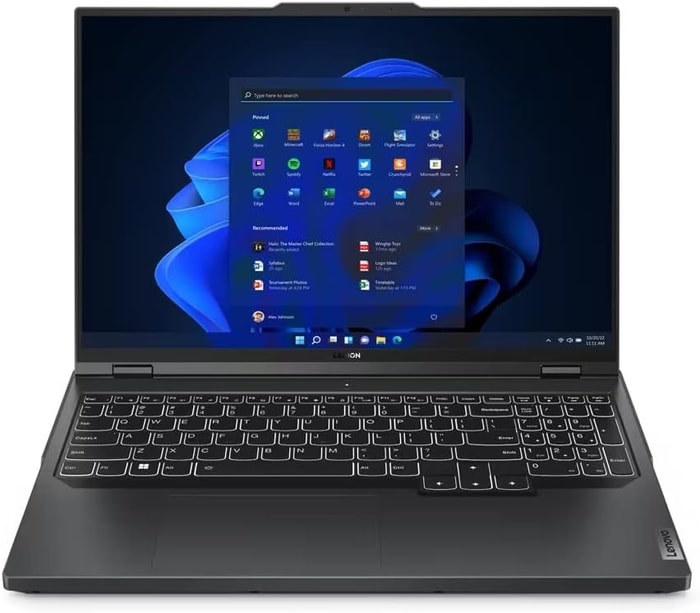 $2,840
$2,840Lenovo Legion Pro 5
- Strong performance for the price
- Quality build and port selection
- Display quality and battery life are just decent
- Bulky and heavy

5.Lenovo Legion Pro 7i 16
Lenovo Legion Pro 7i 16: Sleek and Powerful Gaming Laptop at a Reasonable Price- Strong overall performance
- Big, bright, and fast display
- Per-key RGB lighting
- Some flex to keyboard deck
- Poor battery life
Summary
The Lenovo Legion Pro 7i 16 impresses with its powerful i9-13900HX processor and RTX 4090 graphics card, delivering excellent gaming performance at a more affordable price than its competitors. While it falls short in battery life and keyboard deck flex, its overall performance and sleek design make it a compelling choice for network engineers.
Alternatives

HP Omen 17
- QHD display with 165 Hz
- Expandable working memory
- Slightly below-average performance for a RTX 4080
- High noise level
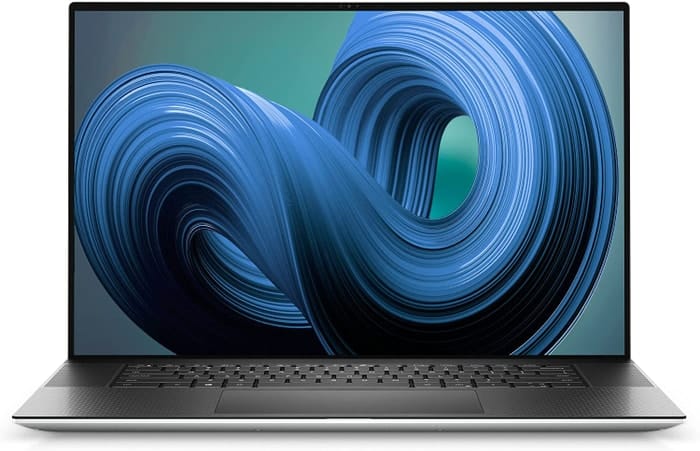
6.Dell XPS 17 9720
Dell XPS 17 9720: A powerful laptop with an excellent 4K display, but graphics performance and cooling could be improved.- Excellent 4K display with AdobeRGB
- High-quality case
- Thunderbolt 4 PCIe 4.0
- Very high system performance
- Lower graphics performance than the predecessor
- Performance not completely stable under combined load
- Not Wi-Fi 6E compatible
- 720p webcam
Summary
The Dell XPS 17 9720 offers an outstanding 4K display with AdobeRGB and high-quality case. It boasts Thunderbolt 4 and PCIe 4.0, as well as very high system performance. However, the graphics performance falls short compared to its predecessor, and the cooling system is slightly weak.
Reviews
Alternatives
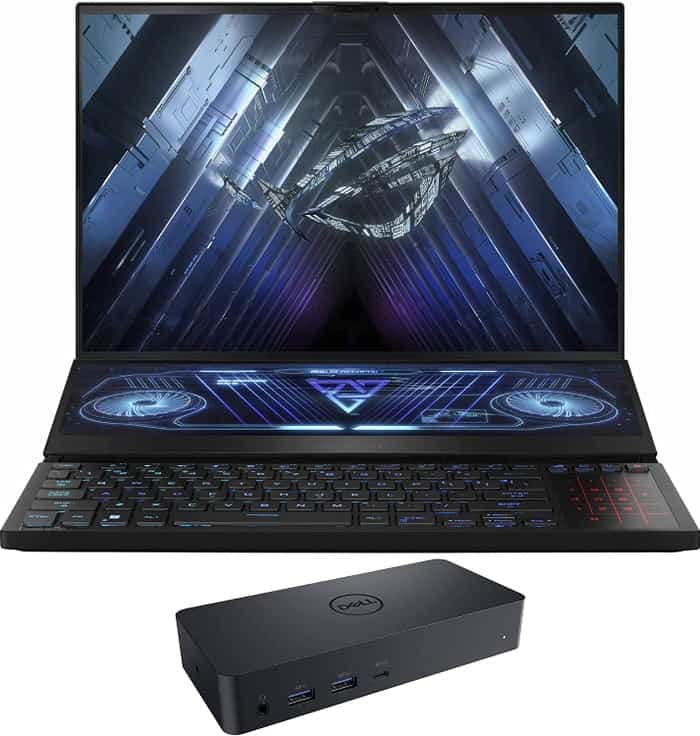
ASUS ROG Zephyrus Duo
- Impressively thin and elegant design with dual displays and powerful specs.
- Refined two-screen layout for enhanced multitasking.
- The high cost, especially with additional configurations.
- Awkward keyboard and touchpad layout.
Table of the Best Laptops for network engineer
| Laptop | Price (approx) |
| HP Victus 15 | $880 |
| ASUS TUF Dash F15 | $1,160 |
| HP Envy 16 | $1,800 |
| Lenovo Legion Pro 5 | $2,630 |
| Lenovo Legion Pro 7i 16 | $3,390 |
| Dell XPS 17 9720 | $5,600 |

